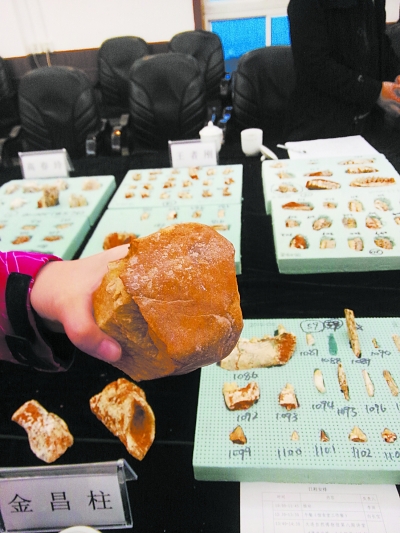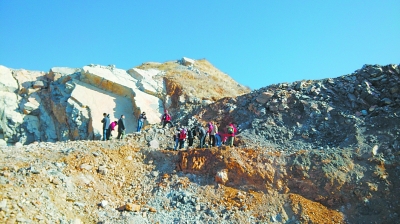Peking Man era site revealed
 0 Comment(s)
0 Comment(s) Print
Print E-mail Xinhua, November 16, 2014
E-mail Xinhua, November 16, 2014
Chinese archeologists say they have discovered another important site of human activity dating back 300,000 to 500,000 years, roughly contemporary with Peking Man.
 |
|
A stone tool excavated at a limestone quarry site on Luotuo Hill in the northeast coastal city of Dalian in Liaoning Province. [Guangming Daily] |
Dozens of stone, animal bone and horn tools have been excavated at a limestone quarry site on Luotuo Hill in the northeast coastal city of Dalian in Liaoning Province.
Researchers have obtained more than 1,000 samples since a joint excavation began in August by the Institute of Vertebrate Paleontology and Paleoanthropology of the Chinese Academy of Sciences and the Dalian Natural History Museum.
Stone tools and large animal bones that appear to have been cut or smashed by humans suggest an important site of early human activity, said Huang Weiwen, an institute researcher.
Deer and antelope horn tools were also used at the Zhoukoudian Caves in Beijing’s suburbs, where the skulls of Peking Man, or Homo erectus, were found in the 1920s and 1930s.
 |
|
The excavation site on Luotuo Hill in Liaoning Province. [Guangming Daily] |
Peking Man was first believed to have lived in Zhoukoudian about 400,000 to 500,000 years ago. But some Chinese scientists later said they were 200,000 years older. “The discovery of the Luotuo Hill site of early human beings is of great significance,” said Gao Chunling, deputy head of the Dalian museum.
It is likely to be the earliest cultural ruins in northeast China, making it important for the study of human evolution and the origin of culture in the region, Gao said.
Fossils of ancient mammals such as elephants and tigers were also similar to those unearthed at Zhoukoudian, according to the researchers.






Go to Forum >>0 Comment(s)